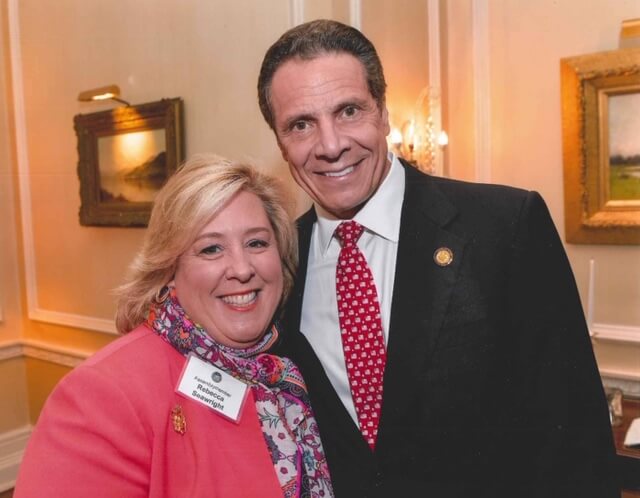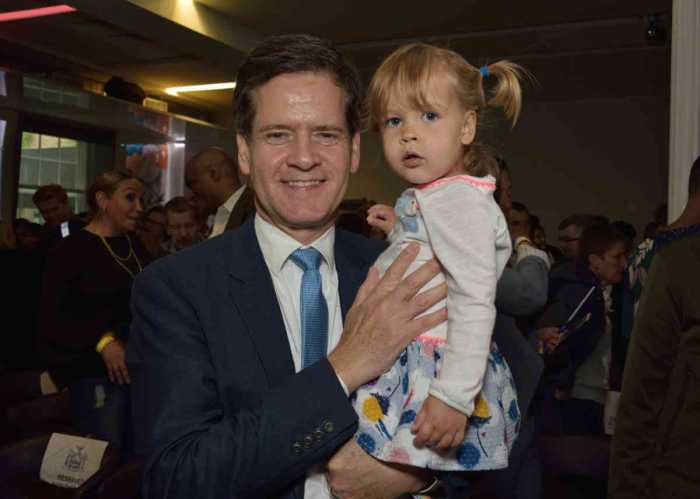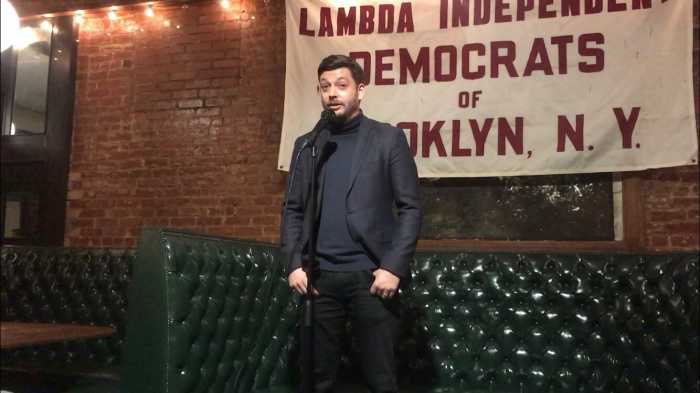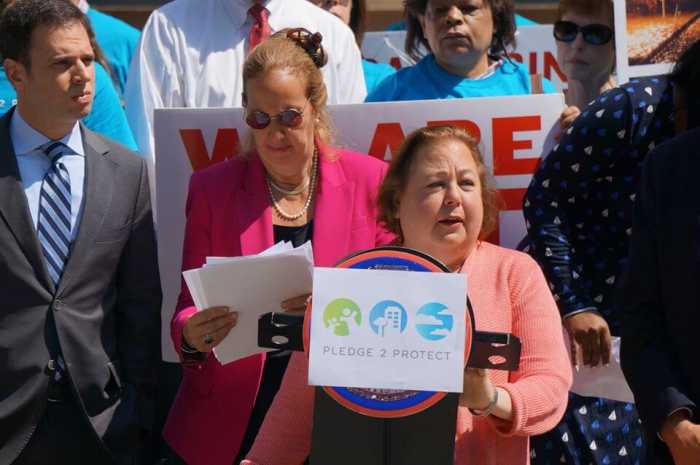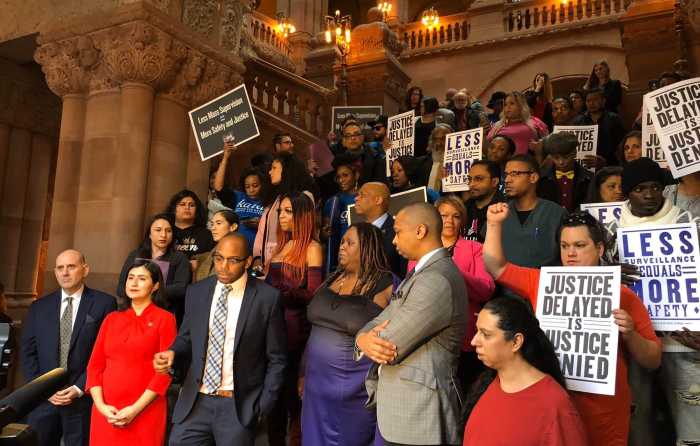At the height of the spring coronavirus crisis in New York, three-term Democratic State Assemblymember Rebecca Seawright came in for a rude shock in her effort for another term in Albany. Her campaign’s failure to file cover sheets for the voter signatures required to put her on the June primary ballot on the Democratic and Working Families Party lines led the state’s highest bench, the Court of Appeals, to deny the Upper East Sider what otherwise would have routinely been her ballot spots in the November 3 election.
Suddenly, Republican Lou Puliafito, who works as residential doorman in the neighborhood, seemed headed for Albany to join the decidedly minority GOP caucus — 43 seats out of 150 — from an overwhelming Democratic district that runs from Third Avenue to the East River, between the East 60s and East 90s, and also includes Roosevelt Island. Though he’s the Republican candidate, Puliafito would not say if he is supporting the reelection of his party’s leader, President Donald Trump — even when speaking with the Trump-friendly New York Post.
But Seawright, who said she suffered COVID-type symptoms during the spring voter signature petitioning period, did not let the matter rest with the high court’s ruling. The former New York State director of the National Women’s Political Caucus got to work, making good use of a COVID-inspired extension through July 31 of the signature collection period for candidates hoping to run on an independent line.
Upper East Side progressive, after signature filing snafu, running hard on her own independent line
So on the November 3 ballot, for which early in-person voting begins October 24, Seawright is the candidate of the Rise and Unite Party.
And this week, Governor Andrew Cuomo endorsed that party’s candidate in the 76th Assembly District — Rebecca Seawright.
Among the issues the governor singled out for praise in his endorsement was Seawright’s successful advocacy of a law requiring insurance companies to pay for 3-D mammograms, which are vital to early detection of breast cancer.
“I was proud to sign her life-saving bill into law,” Cuomo said, adding other states have followed New York’s lead with similar legislation.
A graduate of the City University of New York School of Law, where she is on the Board of Visitors, Seawright, with her background at the National Women’s Political Caucus, is unsurprisingly a strong champion of feminist issues. With her fellow Upper East Side Democrat, Senator Liz Krueger, Seawright is leading the effort to have New York State adopt an equal rights amendment.
That effort — which would add to existing state constitutional protections based on race and religion — has occasioned debate in the Legislature over whether it should include protections based solely on sex or whether it should also include protections based on sexual orientation, gender identity, national origin, ethnicity, age, and disability.
The Senate has approved the broader measure, but so far the Assembly has only approved a measure adding sex discrimination protections to the Constitution, though Seawright also sponsors the more inclusive measure that tracks the Senate approach. The effort by Seawright and Krueger to move a broader amendment got a boost in January when Cuomo embraced that approach. For now, further lift is required of Seawright. If the more inclusive approach is embraced by her chamber, the amendment would have to be approved again by a subsequent session of both the Assembly and the Senate before it would go before New York voters.
The more inclusive approach is a measure of the expansive view that both Seawright and Krueger take toward equal rights and gender parity.
That perspective is also reflected in Seawright’s role as an honorary member of Feminist Press’ board of directors, which is chaired by Essence Magazine’s out lesbian former executive editor Linda Villarosa. The Press produces cutting edge feminist works, including a forthcoming volume “Essays on Sex Work and Survival.” Sex work decriminalization has emerged as an important issue in LGBTQ political circles.
Beyond her championing of an inclusive equal rights amendment to the New York State Constitution, Seawright has been a reliable ally to the queer community’s agenda, voting in support of recent victories in enacting the Gender Expression Non-Discrimination Act (GENDA), in banning conversion therapy practiced on minors, and in eliminating any gay or transgender panic defense available to defendants accused of capital crimes.
Seawright, in 2018, with out gay State Senator Brad Hoylman, sponsored a resolution honoring the life of Edie Windsor, the marriage equality champion who defeated the Defense of Marriage Act at the Supreme Court in 2013 and died in September of 2017.
Early this year, Seawright and Hoylman announced introduction of Teach LGBT New York, a measure that would mandate public schools to include LGBTQ history in their curriculum.
“The statistic that less than 20 percent of LGBTQ students have been taught positive representation about LGBTQ people and history is unacceptable,” Seawright said at the time. “It is vitally important to teach about the LGBTQ community and history to promote tolerance and acceptance. Students will see the varied contributions of LGBTQ individuals to American history and have the comfort in knowing that they belong in our schools and our communities.”
Most recently, Seawright, whose office was the target of an August act of anti-Semitic vandalism — not because she is Jewish but rather because she mentioned a synagogue in a campaign fundraising letter — proposed an enhancement to the state’s hate crimes law that would mandate “anti-hate” training for anyone convicted of a hate crime.
Commenting on the proposal, Michael D. Cohen, an official with the Simon Wiesenthal Center, in a written statement, said, “At a time of continued hate crimes, particularly anti-Semitic attacks, including violence against Jews on the streets of New York, the SWC commends Assemblymember Rebecca Seawright for this important legislative initiative. It will help ensure that criminal acts against any New Yorker where hate may be a motivator, will be fully investigated and pursued to the full extent of the law.”

